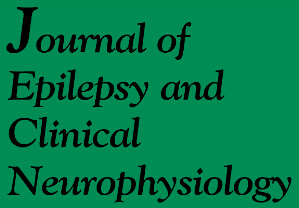INTRODUCTION: Renal and hepatic diseases cause seizures and patients with epilepsy may suffer from such diseases which change antiepileptic drugs (AEDs) metabolism. OBJECTIVES: To revise how seizures may be caused by metabolic disturbances due to renal or hepatic diseases, by their treatment or by comorbidities and how AEDs choice might be influenced by these conditions. RESULTS: Seizures arise in renal failure due to toxins accumulation and to complications like sepsis, hemorrhage, malignant hypertension, pH and hydroelectrolytic disturbances. Hemodialysis leads to acute dysequilibrium syndrome and to dementia. Peritoneal dialysis may cause hyperosmolar non-ketotic coma. Post-renal transplant immunosupression is neurotoxic and cause posterior leukoencephalopathy, cerebral lymphoma and infections. Some antibiotics decrease convulsive thresholds, risking status epilepticus. Most commonly used AEDs in uremia are benzodiazepines, ethosuximide, phenytoin and phenobarbital. When treating epilepsy in renal failure, the choice of AED remains linked to seizure type, but doses should be adjusted especially in the case of hydrosoluble, low-molecular-weight, low-protein-bound, low apparent distribution volume AEDs. Hepatic failure leads to encephalopathy and seizures treated by ammonium levels and intestinal bacterial activity reductions, reversal of cerebral edema and intracranial hypertension. Phenytoin and benzodiazepines are usually ineffective. Seizures caused by post-hepatic immunosupression can be treated by phenytoin or levetiracetam. Seizures in Wilson's disease may result from D-penicillamine dependent piridoxine deficiency. Porphyria seizures may be treated with gabapentin, oxcarbazepine and levetiracetam. Hepatic disease changes AEDs pharmacokinetics and needs doses readjustments. Little liver-metabolized AEDs as gabapentin, oxcarbazepine and levetiracetam are theoretically more adequate. CONCLUSIONS: Efficient seizures treatment in renal and hepatic diseases requires adequate diagnosis of these disturbances and their comorbidities besides good knowledge on AEDs metabolism, their pharmacokinetic changes in such diseases, careful use of concomitant medications and AEDs serum levels monitoring.
Seizures; antiepileptic drugs; pharmacokinetics; renal failure; hepatic failure; hemodialysis; immunosupression

